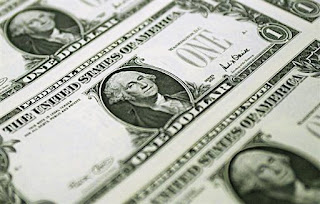 |
| © AFP/File Shawn Thew |
WASHINGTON (AFP) – Washington politicians seeking support in their bitter budget battle aren’t getting much help from economists, who are divided over whether spending is the best medicine for the struggling economy.
Democrats have recruited a phalanx of economic stars to support their fight against some $61 billion in cuts Republicans are trying to force on the White House.
Democrats say such cuts will cost hundreds of thousands of potential jobs this year, at a time when the unemployment rate languishes at nine percent.
But Republicans are answering with their own heavyweights, who insist that more government spending — and the mounting deficits that come with it — hurts job creation and endangers the economy over the long run.
It is much more than an academic argument. Without an agreement in two weeks, government spending could be frozen, halting many crucial services.
The White House is backed by economists at blue chip investment bank Goldman Sachs, who said that $61 billion in cuts would slice 1.5-2 percentage points off growth over the next half-year.
And Mark Zandi, an economist at Moody’s Analytics, a subsidiary of the conservative bond rater, said this week that overall 2011 growth would take an 0.5 percent hit and 2012 would lose 0.2 percent following such cuts.
“This would mean some 400,000 fewer jobs created by the end of 2011 and 700,000 fewer jobs by the end of 2012,” he wrote.
“A government shutdown lasting longer than a couple of weeks would do much more damage to the economy,” he added.
A letter signed by 320 top economists — including at least one Nobel laureate — and addressed to President Barack Obama and Congress on Monday said the longer-term damage of the cuts could be more significant.
The cuts “threaten our economy’s long-term economic competitiveness and the strength of our current economic recovery,” said the letter organized by the Center for American Progress, a liberal think tank.
“We believe it is short-sighted to make budget cuts that eliminate necessary investments in our human capital, our infrastructure and the next generation of scientific and technological advances,” they said.
In February, however, a different letter signed by 150 economists warned of excessive government spending and the budget deficit.
“To support real economic growth and support the creation of private-sector jobs, immediate action is needed to rein in federal spending,” they said.
The White House and its backers say now is not the time for drastic cuts.
The Federal Reserve sees economic growth — which stood at 2.8 percent in the fourth quarter of 2010 — as only “modest to moderate” and job creation as too weak for a sustained recovery.
“It needs to be explained. Exactly how does defunding schools create jobs?” said John Irons of the Economic Policy Institute, which supported Monday’s letter.
 Republican budget-slashing “is a major roadblock to continuing economic growth and continuing job creation,” he added.
Republican budget-slashing “is a major roadblock to continuing economic growth and continuing job creation,” he added.
But Stanford University economics professor John Taylor said that the proposed cuts won’t have that much impact on overall government spending from last year to next.
“There is no convincing evidence that (the Republican proposal) will reduce economic growth or total employment,” he said.
The White House’s opponents largely reject the Keynesian model embraced by many economists, which holds that government spending can jump-start an economy in a depressed, low-inflation situation.
“There’s no scientific consensus on that model,” argued Adam Gifford, chairman of the economics department at California State University — Northridge, who signed the letter backing budget cuts.
Taylor says his own economic models show, in contrast to the Keynesian view, that in a supposed competition for funds, government spending crowds out the private sector.
“A reduction in the growth of spending will immediately ‘crowd in’ private investment,” he said.
But Gifford was less certain on that point.
“With the low real interest rates, it’s hard to make a case that there is real crowding out of the private sector right now,” he said.
“But there is a lot of uncertainty about the future… and that affects private investment.”
© AFP — Published at Activist Post with license


Be the first to comment on "Spend or cut: US economists split on best medicine"